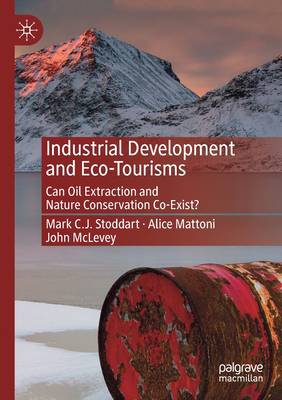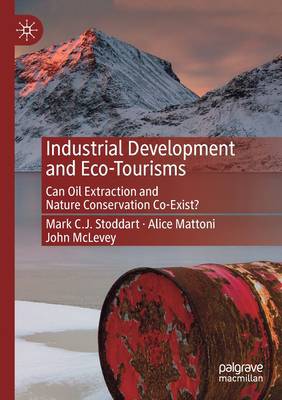
- Afhalen na 1 uur in een winkel met voorraad
- Gratis thuislevering in België vanaf € 30
- Ruim aanbod met 7 miljoen producten
- Afhalen na 1 uur in een winkel met voorraad
- Gratis thuislevering in België vanaf € 30
- Ruim aanbod met 7 miljoen producten
Zoeken
Industrial Development and Eco-Tourisms
Can Oil Extraction and Nature Conservation Co-Exist?
Mark C J Stoddart, Alice Mattoni, John McLevey
Paperback | Engels
€ 105,45
+ 210 punten
Uitvoering
Omschrijving
This book examines the "oil-tourism interface", the broad range of direct and indirect contact points between offshore oil extraction and nature-based tourism. Offshore oil extraction and nature-based tourism are pursued as development paths across the North Atlantic region. Offshore oil promises economic benefits from employment and royalty payments to host societies, but is based on fossil fuel-intensive resource extraction. Nature-based tourism, instead, is based on experiencing natural environments and encountering wildlife, including whales, seals, or seabirds. They share social-ecological space, such as oceans, coastlines, cities and towns where tourism and offshore oil operations and offices are located. However, they rarely share cultural or political space, in terms of media coverage, public debate, or policy discussion that integrates both modes of development. Through a comparative analysis of Denmark, Iceland, Newfoundland and Labrador, Norway, and Scotland, this book offers important lessons for how coastal societies can better navigate relationships between resource extraction and nature-based tourism in the interests of social-ecological wellbeing.
Specificaties
Betrokkenen
- Auteur(s):
- Uitgeverij:
Inhoud
- Aantal bladzijden:
- 235
- Taal:
- Engels
Eigenschappen
- Productcode (EAN):
- 9783030559465
- Verschijningsdatum:
- 9/10/2021
- Uitvoering:
- Paperback
- Formaat:
- Trade paperback (VS)
- Afmetingen:
- 148 mm x 210 mm
- Gewicht:
- 340 g

Alleen bij Standaard Boekhandel
+ 210 punten op je klantenkaart van Standaard Boekhandel
Beoordelingen
We publiceren alleen reviews die voldoen aan de voorwaarden voor reviews. Bekijk onze voorwaarden voor reviews.











